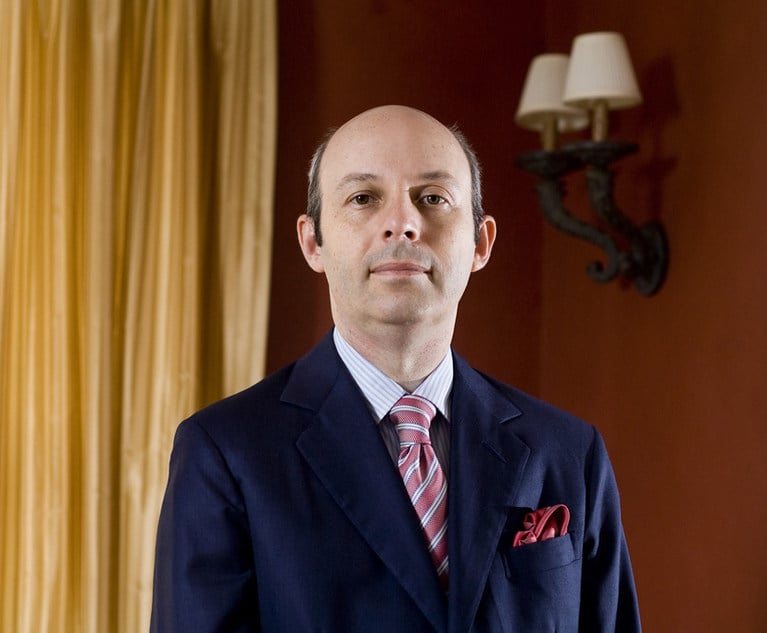The Unraveling of Sean Combs: How Legislation from the #MeToo Movement Brought Diddy Down
With a backdrop of the case against Sean Combs, Kara Bellew discusses the laws and legislative reforms which are paving the way for broader recognition of survivor rights and accountability measures.
November 22, 2024 at 10:30 AM
8 minute read
By Kara Bellew
On Sept. 17, 2024, the US Department of Justice (DOJ) indicted rapper and producer Sean Combs (also known as “Puff Daddy” or “Diddy”) in the Southern District of New York. In a 14-page, three-count indictment, the DoJ brought charges of racketeering conspiracy, sex trafficking by force, fraud or coercion, and transportation to engage in prostitution against Combs.

It is crucial to understand the full history of Combs’ unraveling—a story that culminates, rather than begins, with his criminal indictment. Legislation passed in the wake of the #MeToo movement enabled survivors and victims, who would otherwise have been time-barred by statutes of limitations, to file civil suits against Combs. One of these survivors, Cassie Ventura, allegedly endured over a decade of violence and abuse as Combs’ former girlfriend. Her civil suit prompted the filing of many others, which drew significant attention and eventually led to a criminal investigation and Combs’ indictment.
NOT FOR REPRINT
© 2025 ALM Global, LLC, All Rights Reserved. Request academic re-use from www.copyright.com. All other uses, submit a request to [email protected]. For more information visit Asset & Logo Licensing.
You Might Like
View All
Relaxing Penalties on Discovery Noncompliance Allows Criminal Cases to Get Decided on Merit
5 minute read
SCOTUSblog Co-Founder Tom Goldstein Misused Law Firm Funds, According to Federal Indictment
2 minute read
Snapshot Judgment: The Case Against Illustrated Indictments

Read the Document: DOJ Releases Ex-Special Counsel's Report Explaining Trump Prosecutions
3 minute readTrending Stories
Who Got The Work
J. Brugh Lower of Gibbons has entered an appearance for industrial equipment supplier Devco Corporation in a pending trademark infringement lawsuit. The suit, accusing the defendant of selling knock-off Graco products, was filed Dec. 18 in New Jersey District Court by Rivkin Radler on behalf of Graco Inc. and Graco Minnesota. The case, assigned to U.S. District Judge Zahid N. Quraishi, is 3:24-cv-11294, Graco Inc. et al v. Devco Corporation.
Who Got The Work
Rebecca Maller-Stein and Kent A. Yalowitz of Arnold & Porter Kaye Scholer have entered their appearances for Hanaco Venture Capital and its executives, Lior Prosor and David Frankel, in a pending securities lawsuit. The action, filed on Dec. 24 in New York Southern District Court by Zell, Aron & Co. on behalf of Goldeneye Advisors, accuses the defendants of negligently and fraudulently managing the plaintiff's $1 million investment. The case, assigned to U.S. District Judge Vernon S. Broderick, is 1:24-cv-09918, Goldeneye Advisors, LLC v. Hanaco Venture Capital, Ltd. et al.
Who Got The Work
Attorneys from A&O Shearman has stepped in as defense counsel for Toronto-Dominion Bank and other defendants in a pending securities class action. The suit, filed Dec. 11 in New York Southern District Court by Bleichmar Fonti & Auld, accuses the defendants of concealing the bank's 'pervasive' deficiencies in regards to its compliance with the Bank Secrecy Act and the quality of its anti-money laundering controls. The case, assigned to U.S. District Judge Arun Subramanian, is 1:24-cv-09445, Gonzalez v. The Toronto-Dominion Bank et al.
Who Got The Work
Crown Castle International, a Pennsylvania company providing shared communications infrastructure, has turned to Luke D. Wolf of Gordon Rees Scully Mansukhani to fend off a pending breach-of-contract lawsuit. The court action, filed Nov. 25 in Michigan Eastern District Court by Hooper Hathaway PC on behalf of The Town Residences LLC, accuses Crown Castle of failing to transfer approximately $30,000 in utility payments from T-Mobile in breach of a roof-top lease and assignment agreement. The case, assigned to U.S. District Judge Susan K. Declercq, is 2:24-cv-13131, The Town Residences LLC v. T-Mobile US, Inc. et al.
Who Got The Work
Wilfred P. Coronato and Daniel M. Schwartz of McCarter & English have stepped in as defense counsel to Electrolux Home Products Inc. in a pending product liability lawsuit. The court action, filed Nov. 26 in New York Eastern District Court by Poulos Lopiccolo PC and Nagel Rice LLP on behalf of David Stern, alleges that the defendant's refrigerators’ drawers and shelving repeatedly break and fall apart within months after purchase. The case, assigned to U.S. District Judge Joan M. Azrack, is 2:24-cv-08204, Stern v. Electrolux Home Products, Inc.
Featured Firms
Law Offices of Gary Martin Hays & Associates, P.C.
(470) 294-1674
Law Offices of Mark E. Salomone
(857) 444-6468
Smith & Hassler
(713) 739-1250






